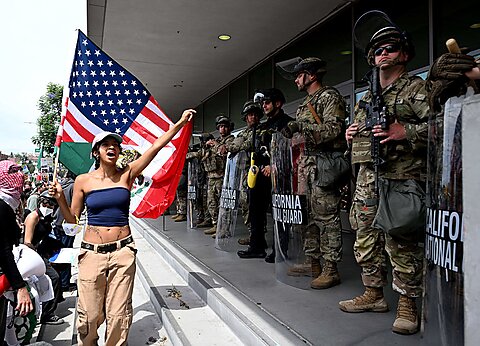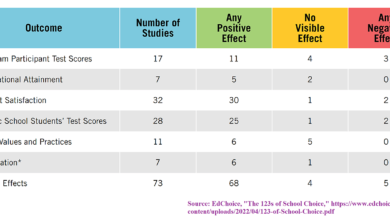Federal Judge: Trump Regime Violated Posse Comitatus Act

Northern District of California Judge Charles Breyer today issued a 52-page opinion and order finding that President Trump’s deployment of the California National Guard (CA NG) and active duty Marines to Los Angeles earlier this summer violated the Posse Comitatus Act—the 1878 law that generally bars the use of federal troops for domestic law enforcement operations.
He enjoined Trump from further use of the 300 remaining CA NG troops for “arrests, apprehensions, searches, seizures, security patrols, traffic control, crowd control, riot control, evidence collection, interrogation, or acting as informants, unless and until Defendants satisfy the requirements of a valid constitutional or statutory exception, as defined herein, to the Posse Comitatus Act.” Breyer then stayed his own order until September 12, no doubt anticipating the regime’s appeal of it.
After a two-day bench trial and a review of multiple federal records, emails, and related correspondence regarding the June 2025 CA NG federalization by Trump, Breyer concluded that,
There were indeed protests in Los Angeles, and some individuals engaged in violence. Yet there was no rebellion, nor was civilian law enforcement unable to respond to the protests and enforce the law. Nevertheless, at Defendants’ orders and contrary to Congress’s explicit instruction, federal troops executed the laws. The evidence at trial established that Defendants systematically used armed soldiers (whose identity was often obscured by protective armor) and military vehicles to set up protective perimeters and traffic blockades, engage in crowd control, and otherwise demonstrate a military presence in and around Los Angeles. In short, Defendants violated the Posse Comitatus Act.
Claims of “rebellion” in Los Angeles over Immigration and Customs Enforcement (ICE) raids were the prime rationale offered by Trump and his officials for the CA NG call-up and the deployment of 700 active duty Marines.
Among the most damning of Breyer’s findings was that,
Moreover, Defendants violated the Posse Comitatus Act willfully.… Defendants knowingly contradicted their own training materials, which listed twelve functions that the Posse Comitatus Act bars the military from performing.…They did so while refusing to meaningfully coordinate with state and local officials.… And they “coach[ed]” federal law enforcement agencies as to what language to use when submitting requests for assistance in an attempt to circumvent the Act. Defendants’ systemic use of Task Force 51 troops to execute domestic law in and around Los Angeles violated the Posse Comitatus Act.
Breyer also highlighted what I have frequently cited as the fatal flaw in our existing constitutional system: having a political branch in charge of police powers. As Breyer noted,
In any case, Defendants’ proposition that the Posse Comitatus Act can only be enforced by federal criminal prosecution is remarkable, as the same federal government that the Act limits would be tasked with enforcing it. More specifically, the same branch of the federal government that the Act limits—the Executive—would be tasked with enforcing the Act against itself. This raises obvious concerns about conflicts of interest.… Surely the Act must provide for some other enforcement mechanism, otherwise it would have been ineffective when passed and would remain so today.
Breyer’s decision only applies to the administration’s use of troops in California, but his historical narrative and legal reasoning will no doubt be of interest to and potentially used by officials in Illinois and other states singled out by Trump and his officials as being insufficiently onboard with his immigration enforcement and so-called “crime control” initiatives.
Even if the Ninth Circuit overturns Breyer’s decision—something we likely won’t know for at least several weeks—other federal circuits may embrace Breyer’s reasoning if confronted with similar regime troop deployments for law enforcement purposes. Should that happen, this issue may be yet another Trump-instigated constitutional crisis that the Supreme Court will be called upon to resolve.





